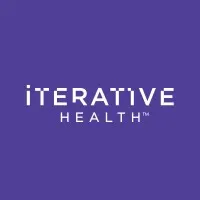Senior Clinical Study Manager
Danaher CorporationFull Time
Senior (5 to 8 years)
Europe

Key technologies and capabilities for this role
Common questions about this position
Candidates must have 5+ years as a Clinical Research Coordinator (senior level preferred) on Phase 2–4, pharma-sponsored trials, with GI/IBD a plus, strong ICH-GCP knowledge, hands-on experience with CTMS/eTMF and productivity tools like Asana, a trainer mindset, and data-driven skills with comfort in ambiguity and multi-project management.
Yes, the role requires approximately 20% travel for selection visits, SIVs, training, and issue resolution, as well as covering the field across Central & Eastern Europe and Georgia.
This information is not specified in the job description.
Iterative Health is actively working towards creating an environment representative of the diversity of patients their technology serves, while focusing on scaling site networks, empowering research teams with AI and tech-enabled services, and driving continuous improvement.
A strong candidate has 5+ years of senior-level Clinical Research Coordinator experience on pharma-sponsored Phase 2-4 trials (GI/IBD preferred), excels in multi-country study coordination, ICH-GCP compliance, tool proficiency like CTMS/eTMF/Asana, training abilities, data-driven operations, and comfort with ~20% travel and ambiguity.

AI-driven solutions for gastrointestinal care
Iterative Health focuses on improving gastrointestinal (GI) care through the use of artificial intelligence (AI) and machine learning (ML). Their main product, SKOUT®, is an FDA-cleared device designed to help doctors detect adenomas, which are precursors to colorectal cancer. This device works alongside physician judgment to enhance the accuracy of diagnoses. In addition to SKOUT®, Iterative Health provides services that optimize clinical trials by using AI-enabled documentation technology, which improves patient care and ensures high-quality reporting across different healthcare institutions. This technology aims to make advanced care more accessible, especially to underserved populations. Unlike many competitors, Iterative Health combines AI technology with a strong focus on colorectal cancer prevention and clinical trial efficiency. The company's goal is to deliver top-tier GI care and improve health outcomes for patients worldwide.